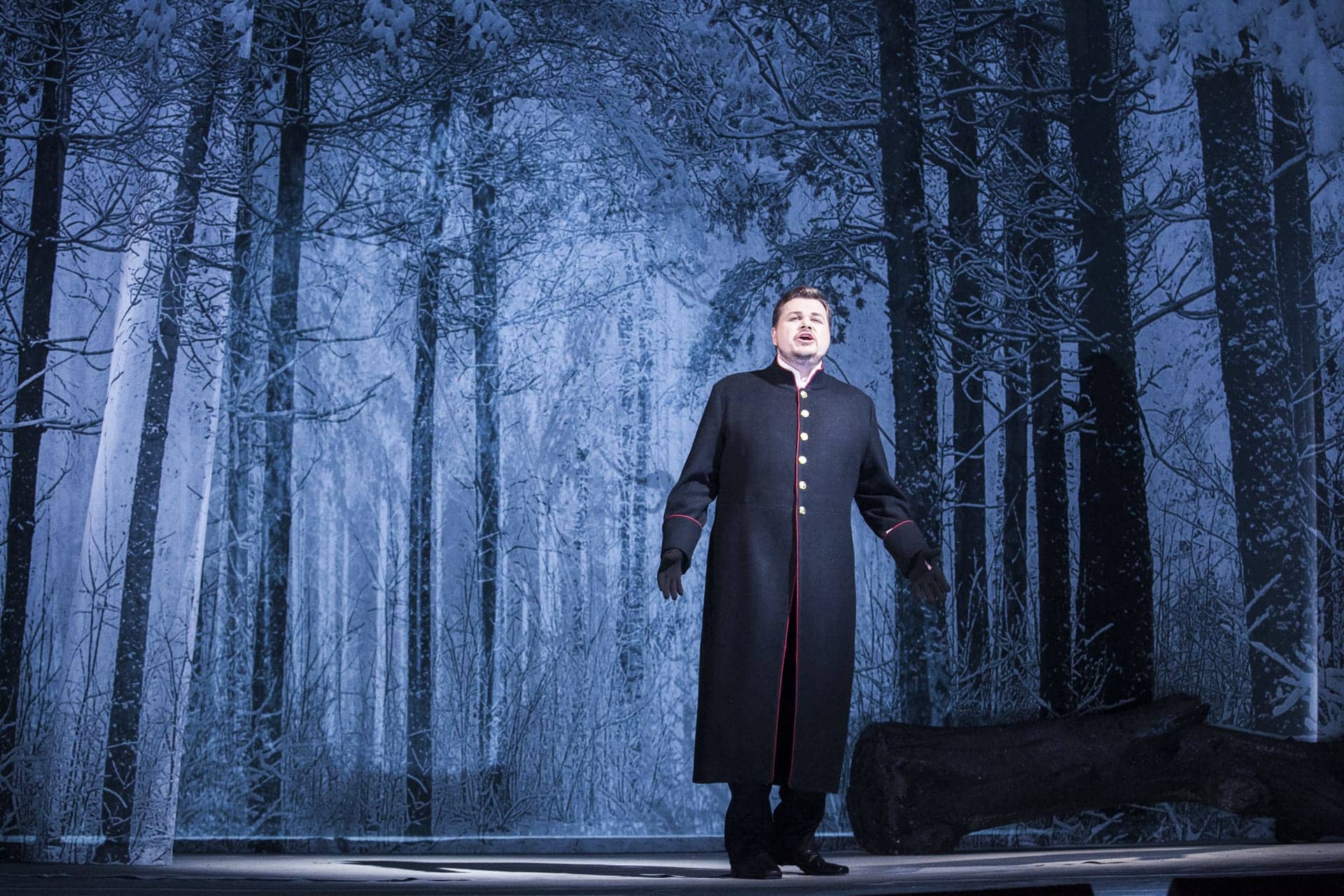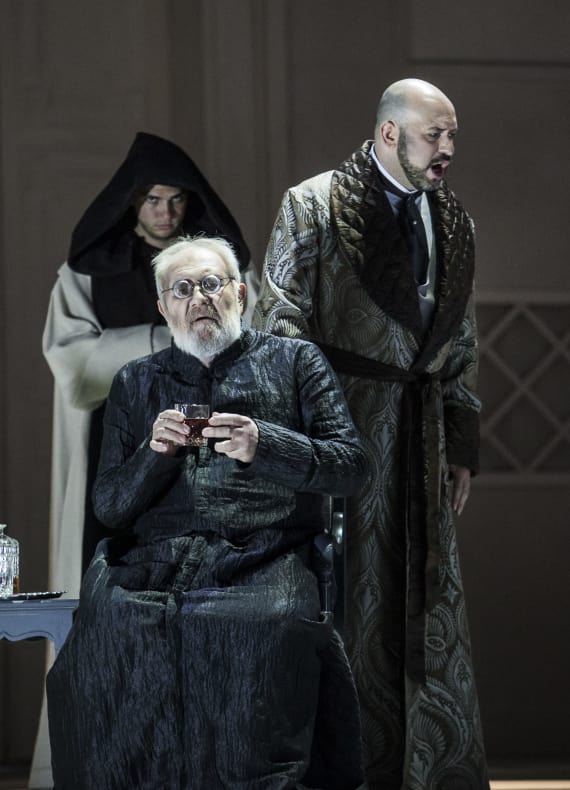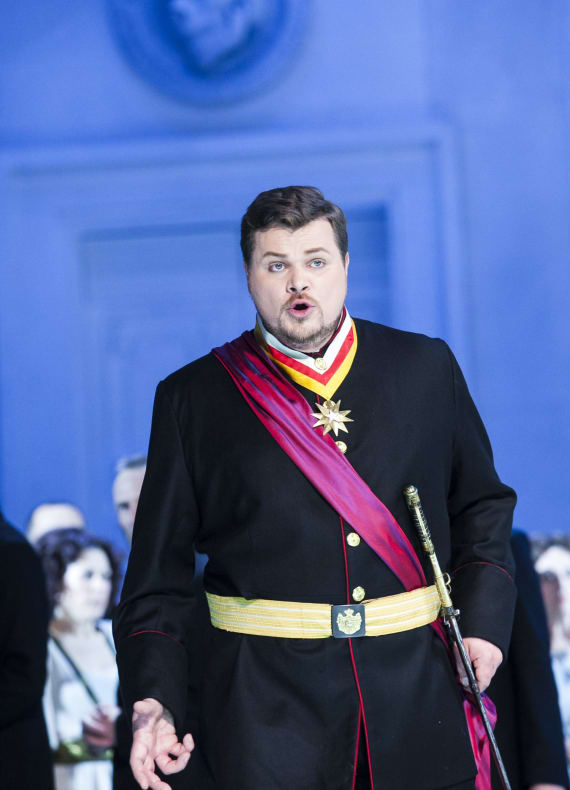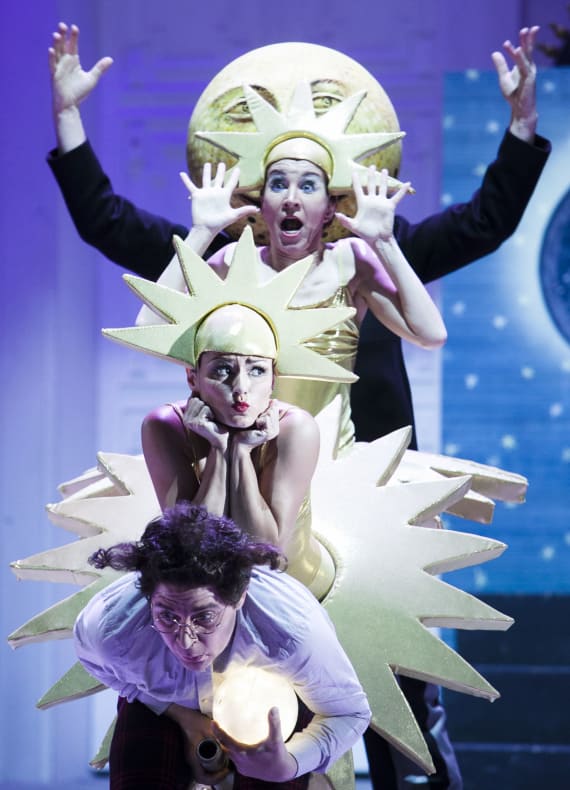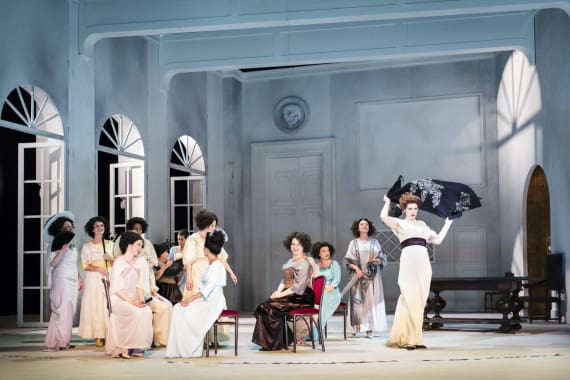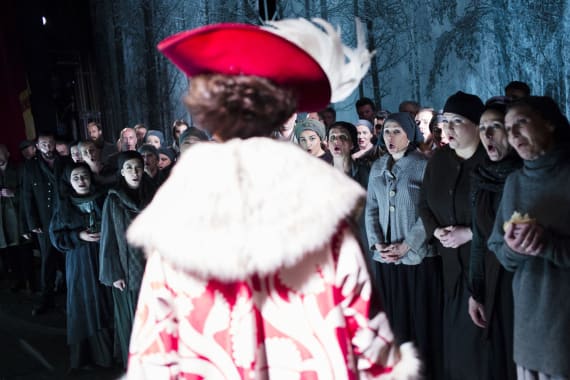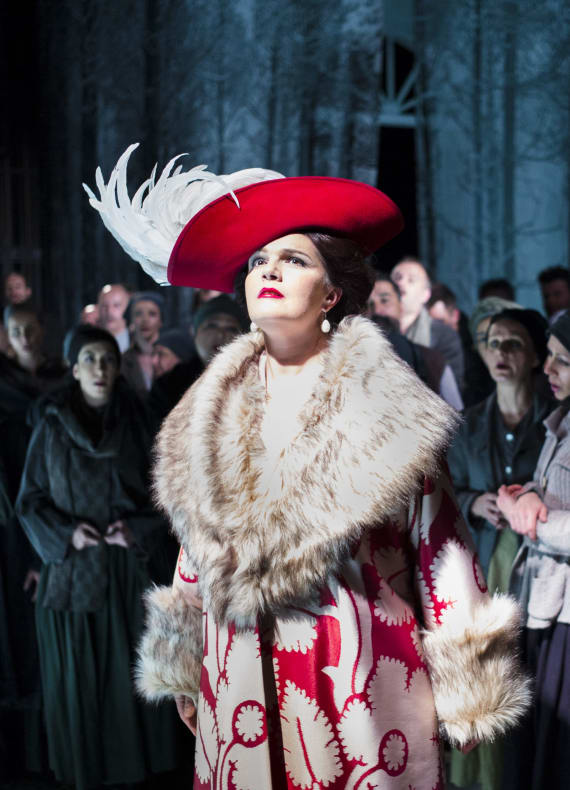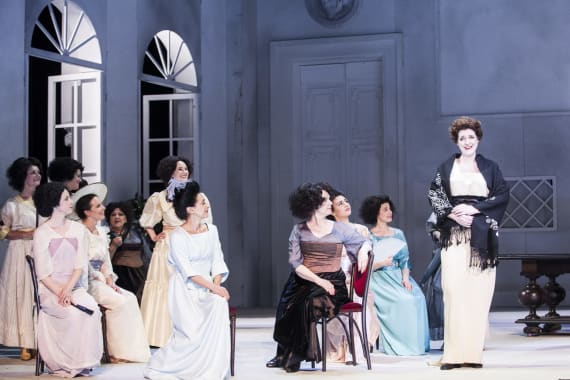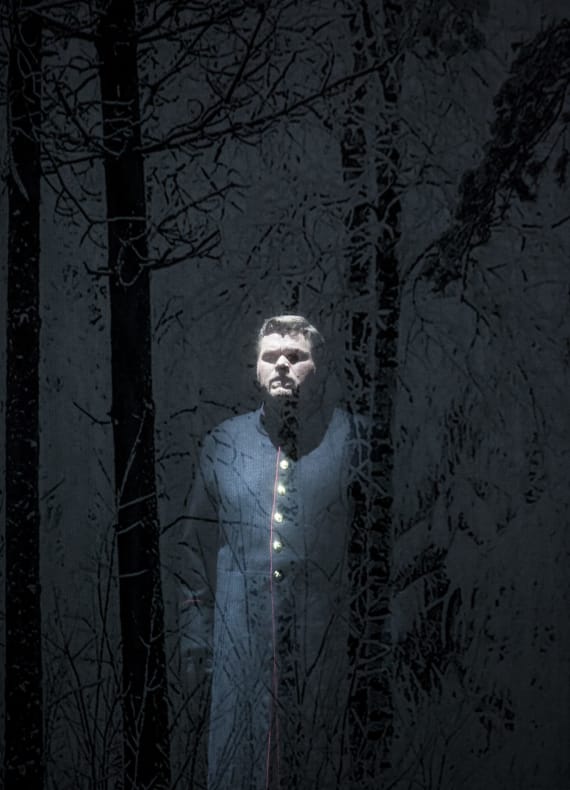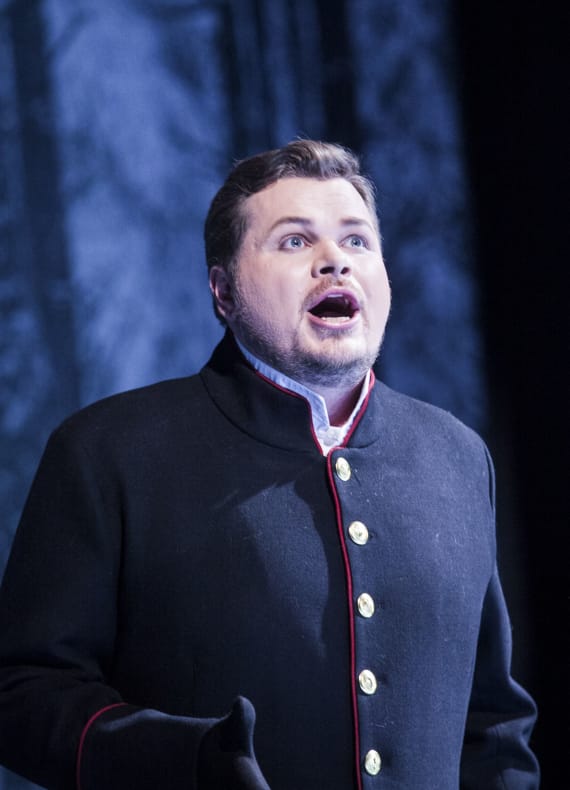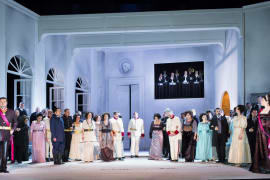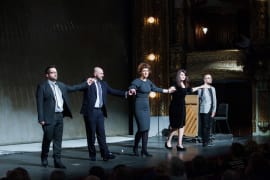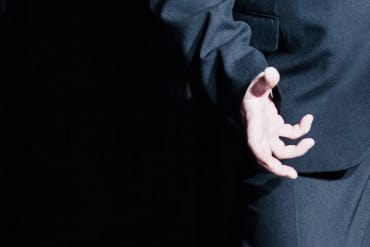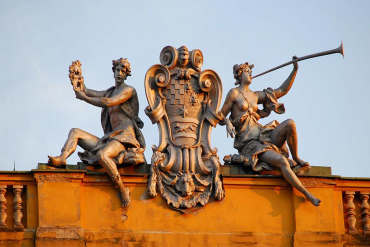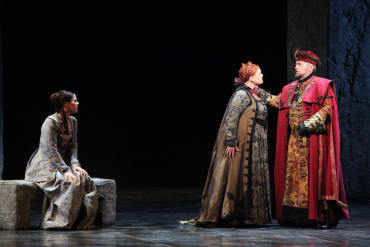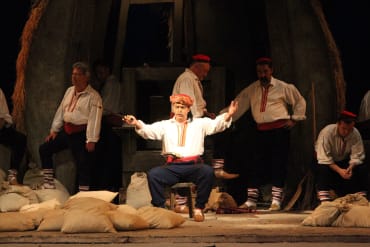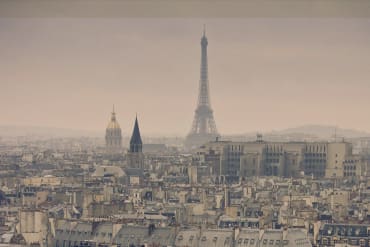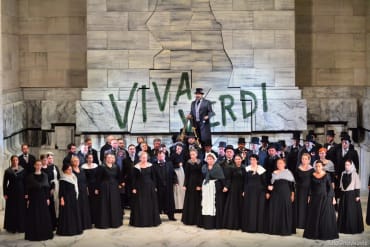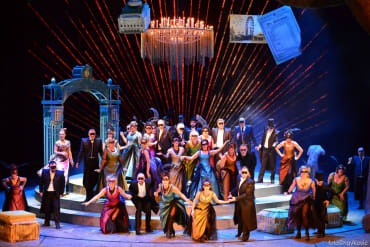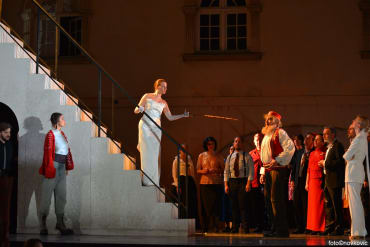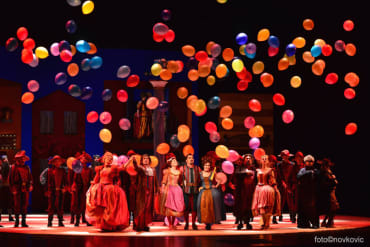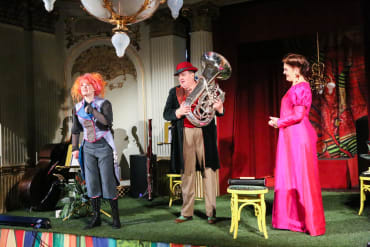Giuseppe Verdi’s masterpiece Don Carlo is based on a tragedy by the German writer Friedrich Schiller. Verdi used to say ‘nothing human is alien to me’ and, indeed, man was always at the heart of his operas, which were frequently inspired by the works of Shakespeare, Hugo or Schiller. The librettists of Don Carlo, Méry and Du Locle, abridged Schiller’s play but Verdi’s music overcame these cuts by embodying what was essential and most valuable in the original. His depiction of the inextricably linked human fates, rendered through magisterial music with stunning richness, expressiveness and psychological depth, creates a work that still strongly expresses the fate and suffering of man.
The plot revolves around the life of Don Carlo, the Spanish heir to the throne, who is engaged to the French princess, Elisabeth of Valois. She is forced to marry Don Carlo’s father Philip for political reasons. The love between the couple continues unabated and Don Carlo arouses his father’s suspicions. Alongside the romantic intrigue, we follow political upheavals in the fight for the independence of Flanders during the heyday of the Spanish Inquisition. At an execution of heretics, Don Carlo draws his sword to defend Flemish emissaries, deepening the king’s dilemma about killing his own son. Meanwhile, Elisabeth, distraught with fear, discovers that her companion Eboli betrayed her, and rescues Don Carlo, who has been imprisoned, on her own. The two rush to the tomb of King Charles V to ask for help, where they are found by King Philip and the Grand Inquisitor. Don Carlo reaches for his sword but his fate has already been sealed and he dies from the hand of a mysterious monk whose voice is recognised as that of the dead Charles V. This divine intervention astonishes everyone and proves that peace can only be found in heaven.
Don Carlo is one of the most frequently staged operas of today, both in French and in Italian, the latter being our language of choice. This opera showcases the best features of Verdi, the great Romantic composer with a flair for drama and melody, and it illustrates complex relationships between the protagonists, whose psychology is portrayed in a markedly contemporary way.
ELIO BONCOMPAGNI studied violin and composition at Florence Conservatory, before continuing to study conducting at Rome Conservatory. He began his solo career as a principal conductor at the Royal Theatre in Brussels. He collaborates with many theatres in Europe and he was the artistic director and conductor at the Teatro di San Carlo in Naples, the permanent conductor at the Vienna Staatsoper and the general music director of the Sinfonieorchester at Aachen. In addition to many guest performances in various theatres, he collaborates permanently with the Teatro Verdi in Trieste and the Teatro del Maggio Musicale in Florence.
DEREK GIMPEL, a German director, studied history and history of art before becoming the staff director in the Staatsoper Unter den Linden in Berlin. In his home theatre he has directed a wide range of works in the performing arts, from Monteverdi and Mozart to contemporary composers.
With the return of the beautiful tenor voice of Tomislav Mužek in the title role, Croatian opera stands to gain a lot.— Jutarnji list
The strongest side of the production are truly convincing and precise musical performances, and the great effort of the ensemble and the soloists was by no means in vain either. Don Carlo is a great accomplishment of the CNT, drawing numerous foreign curious opera enthusiasts and professionals to Zagreb.— Večernji list
